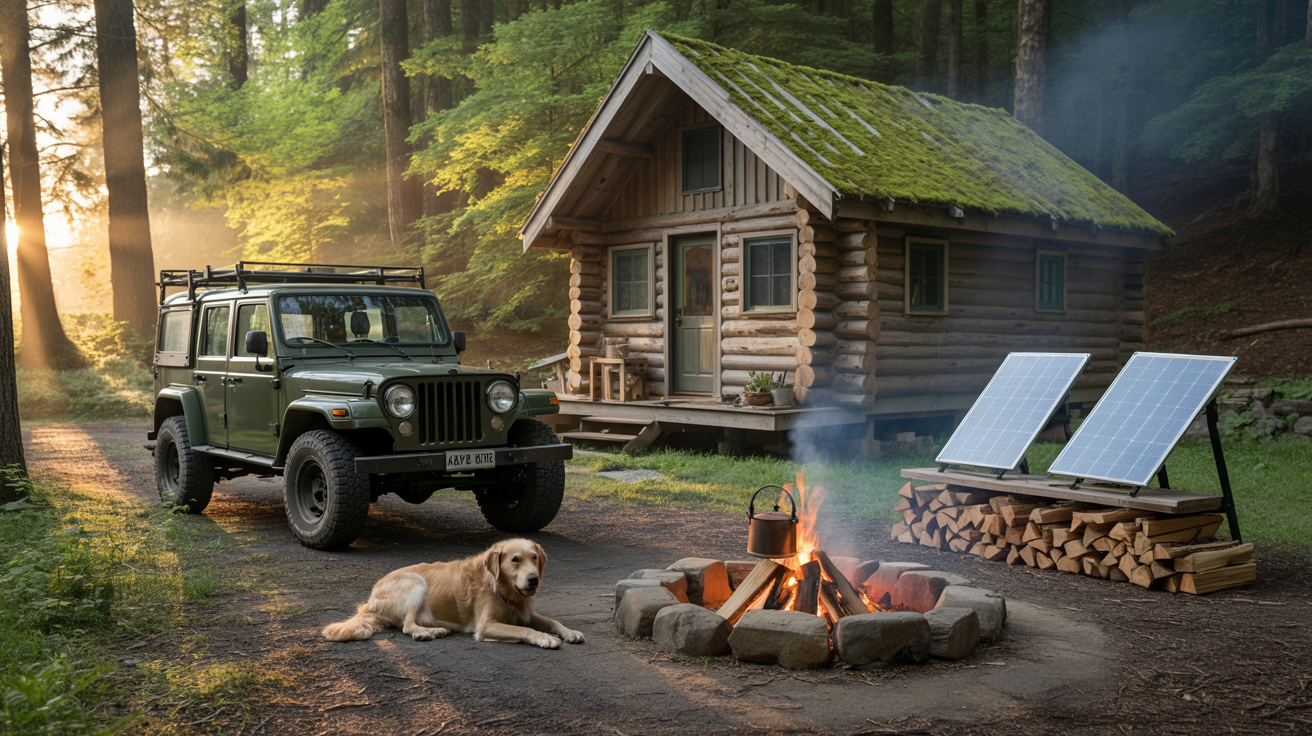Prepping for Peace of Mind: The Joys, Jitters, and Realities of Being Prepared
“Better to have and not need, than to need and not have.”
In the wild and wonderful world of prepping, that quote isn’t just a motto—it’s a lifestyle.
Prepping has evolved far beyond the doomsday bunkers and tinfoil hat stereotypes. Today, it’s often about readiness, resilience, and reclaiming control over the unpredictable. Whether you’re a solo van-lifer with a solar setup, a homesteader in the hills, or just someone with a bug-out bag under the bed, prepping is about building peace of mind for whatever life might throw at you.
The Good: Why People Prep (and Love It)
- Freedom and Self-Reliance: There’s power in knowing you can take care of yourself without constant dependence on outside systems.
- Calm in Chaos: In a world of outages, storms, and unexpected shortages, prepping means you stay grounded while others scramble.
- Skill-Building: From foraging to first aid, prepping encourages lifelong learning.
“Prepping makes me feel less anxious about the world. It gives me purpose, like I’m doing something proactive, not just worrying.”
— User comment from r/Preppers
Van-Life Snapshot: Riley & the River Flash
Riley, a digital nomad living in her converted Sprinter van, didn’t consider herself a prepper—until a flash flood changed her tune. Parked beside a river in northern Arizona, she woke at 2 a.m. to water lapping at her tires. Thanks to her emergency radio and stored gear (a last-minute prep she'd once mocked), she got to high ground safely.
“I used to roll my eyes at ‘preppers,’ but that night... I was grateful to have water, a go-bag, and a plan. Now I get it.” — Riley, full-time van-lifer
The Bad & The Awkward: The Other Side of Prepping
Let’s be honest—prepping isn’t always glamorous. There’s the occasional social judgment (“Are you expecting the apocalypse or something?”), the financial burden of gear, and the mental toll of thinking about worst-case scenarios.
Common Challenges:
- Storage space—Especially tricky for nomads and van-dwellers.
- Over-prepping—It’s easy to go from ready to overboard.
- Stigma—The “doomsday” label still hangs over the community.
But many have found ways to balance preparedness with minimalism and joy—something the modern prepper movement is increasingly embracing.
Mini Survival Tips for Every Lifestyle
🛻 For Van-lifers:
- Keep a compact, water-resistant go-bag under your bed platform.
- Rotate your water supply every few weeks—especially in hot climates.
- Use dual-purpose tools: A hatchet that’s also a hammer, for instance.
🏡 For Homesteaders:
- Store seeds, not just canned goods.
- Solar backups for well pumps are worth the effort.
- Keep extra fuel—but know how to store it safely.
Facing the Stigma, Embracing the Strength
In pop culture, preppers are often portrayed as paranoid, isolated, or extreme. But the reality is much more diverse. Many preppers are nurses, teachers, engineers, and families who simply want to be ready for disruptions—small or large. They garden, they tinker, they learn. They hope for the best while planning for the worst.
And there’s a quiet nobility in that.
Closing Thoughts: Prepping is a Mindset, Not a Panic
Prepping doesn’t mean fearing the future. It means meeting it with a calm, confident heart. It’s about protecting your time, your health, and your loved ones—whether you’re in a 4x4 on a dirt road, or living off-grid in the Ozarks.
It’s not about stockpiling fear. It’s about cultivating freedom.
So whether you're keeping a bug-out plan in your glove box or growing your first survival garden—welcome. You're already a prepper, even if you don’t call yourself one.

